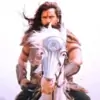Originally posted by: kamala2012
Can anyone explain why Mustafa character is there in this story? Already there are 4 villains, or 5, if we include Mukkades and Munir. Then why one more villain? Without Mustafa, what will the story lose?
Good question. Hope I'm able enough to answer this one.
Disclaimer:Contains off topic references and potentially boring to some.
If one were to look beyond the characters and their actions in this play, one can identify two ideologies that exist in Fg and in any modern societies, for that matter.
On one hand is the ideology of "rule of law" which is to guarantee "fundamental rights" built on LEF, (Liberty, Equality and Fraternity) and enforced through the "Judiciary" (Public Prosecutor and jury bench for Fg) with support of the adminstration machinery, also known as the Executive (Police, in Fg's case). United Nations Charter too reflects these rights in its written Constitution, so also in the Preamble of Indian Constitution. These rights are absent in the dark social realities that marked the Industrial Revolution era that was built on inequality, capitalism and eventually the cause of the World Wars. Very destructive indeed.
On the other hand, there is the ideology of elitism. Capitalists (those controlling the factors of production viz. land, labor, capital and technology) being economically well off control political factors by supplying cash in favour of land and licences. The incentives of elitism are inequalities and aspirational elevations. People love having luxurious cars, dining in expensive restaurants and globe trotting (Mustafa's likes, in short). Such lovely inequalities make for an unequal society. Inequality is what we study and work hard for... Such societies hardly believe in the E of the LEF paradigm.
Now, coming to the times when Vedat Tutkali penned Fg. This was in the post-war world, an era that was moving out from the ravages of destruction. Societies were going through a churn between socialism and capitalism. People knew that for sound life, both money and rights are equally important. Some people believed in defending rights, theirs and others. These are what we call as Leftists and a socialistic government defends and develops rights uniformly. Example: USSR. People believing in elitism and social superiority are what we call as Rightists. Example: USA
Coming to Fatmagul and Turkey, this was a country where it's social fibre was radically altered in the aftermath of WW1, so much so that the entire country changed its political system, national language, women's rights and religious overbearings literally overnight. Even the masjid azaan's language was changed from Arabic to Turkish. That's nearly unimaginable in India. That was Turkey and it's orientation towards "rights", which was very welcomed by Russia back then. Geopolitically, Turkey cannot afford to make enemies with Russia, reason: the Black Sea and the two straits- Bosphorus and Dardanelles.
And yet, Turkey couldn't afford to remain a mere equal without any international political orientation, a key factor that pushed it to ally with the NATO and the US. The US, right from its inception works from the directions of its legacy Fortune 500 bellwether giants and capitalist investors. They believe in a system of governance through capital lobbying and purchasing the power of money. Almost all NATO countries are also open markets for US goods, and NATO governments toe the overall US mandate.
One can see how Turkey needs both Russia and USA for its growth and development. And Turkey is nothing but a summary of its internal society.
Vedat wrote Fatmagul in an era when societies and nations are identifying with the aforementioned ideologies. Parts of societies believe in elitist ideologies (Yasrans, Turaner Alagoz etc) and parts of societies believe in socialist ideologies (Meryem Aksoy, Kaderbhai and other jail inmates). Remember that Meryem doesn't want Risat to forage the village land for business gains? Muqaddas and Mustafa, I need not tell you their orientation now. Through the colourful characters and well-paced narrative, Vedat Turkali has expressed his views of the two ideologies and their inherent opposition towards each other. Now to answer your question,through Mustafa, Vedat used this character to convey that for people to whom money matters, relationships and rights are hollow inexistent concepts. He uses Mustafa to showcase the uncompromising bipolarity of two ideologies.
Sorry for a lengthy answer.
Edited by poweritz - 9 years ago































